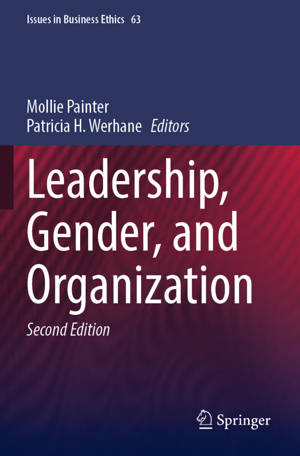
- Retrait gratuit dans votre magasin Club
- 7.000.000 titres dans notre catalogue
- Payer en toute sécurité
- Toujours un magasin près de chez vous
- Retrait gratuit dans votre magasin Club
- 7.000.0000 titres dans notre catalogue
- Payer en toute sécurité
- Toujours un magasin près de chez vous
Leadership, Gender, and Organization
Description
In this collection, the editors again bring together papers that either exemplify the crossing of disciplinary boundaries, or that allow us to do so in and through the conversations they create. The chapters were chosen based on their relevance to similar themes as were discussed in the first volume. By reviewing historical developments in the literature around gender and organization, and by drawing on recent scholarship that disrupts the traditional masculine imaginaries that plague leadership constructs, this book challenges us to radically revise our gendered thinking about leading in organizations. The authors included in this volume offer alternative, interdisciplinary perspectives on the gender constructs that inform the organizing that takes place in business and society. The book delves deeply into how 'relationality', as concept and practice, can help us frame a more inclusive approach to gender within contemporary organizations.
Spécifications
Parties prenantes
- Editeur:
Contenu
- Nombre de pages :
- 276
- Langue:
- Anglais
- Collection :
- Tome:
- n° 63
Caractéristiques
- EAN:
- 9783031244476
- Date de parution :
- 18-08-24
- Format:
- Livre broché
- Format numérique:
- Trade paperback (VS)
- Dimensions :
- 155 mm x 235 mm
- Poids :
- 441 g

Les avis
Nous publions uniquement les avis qui respectent les conditions requises. Consultez nos conditions pour les avis.





